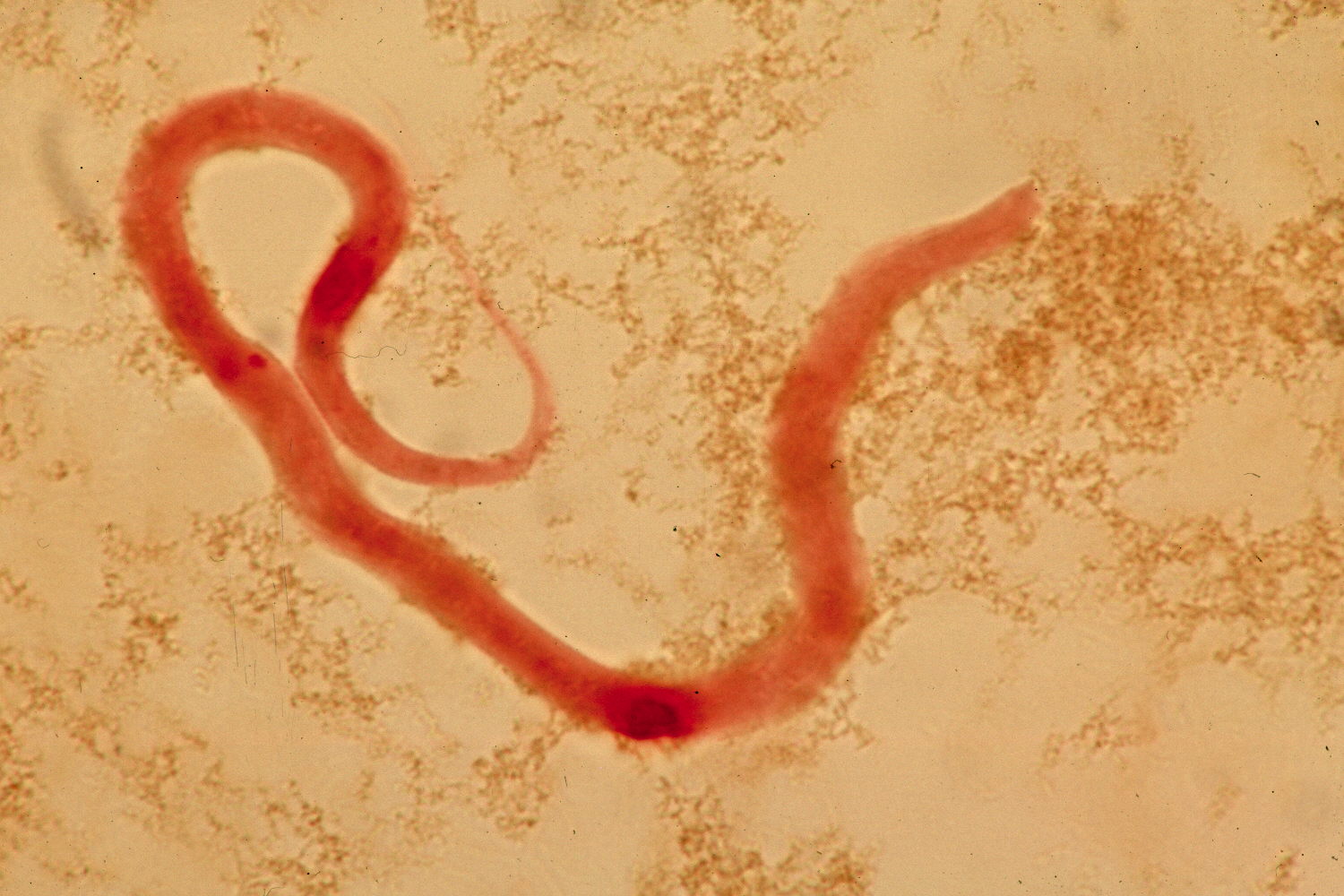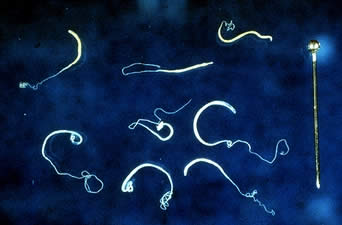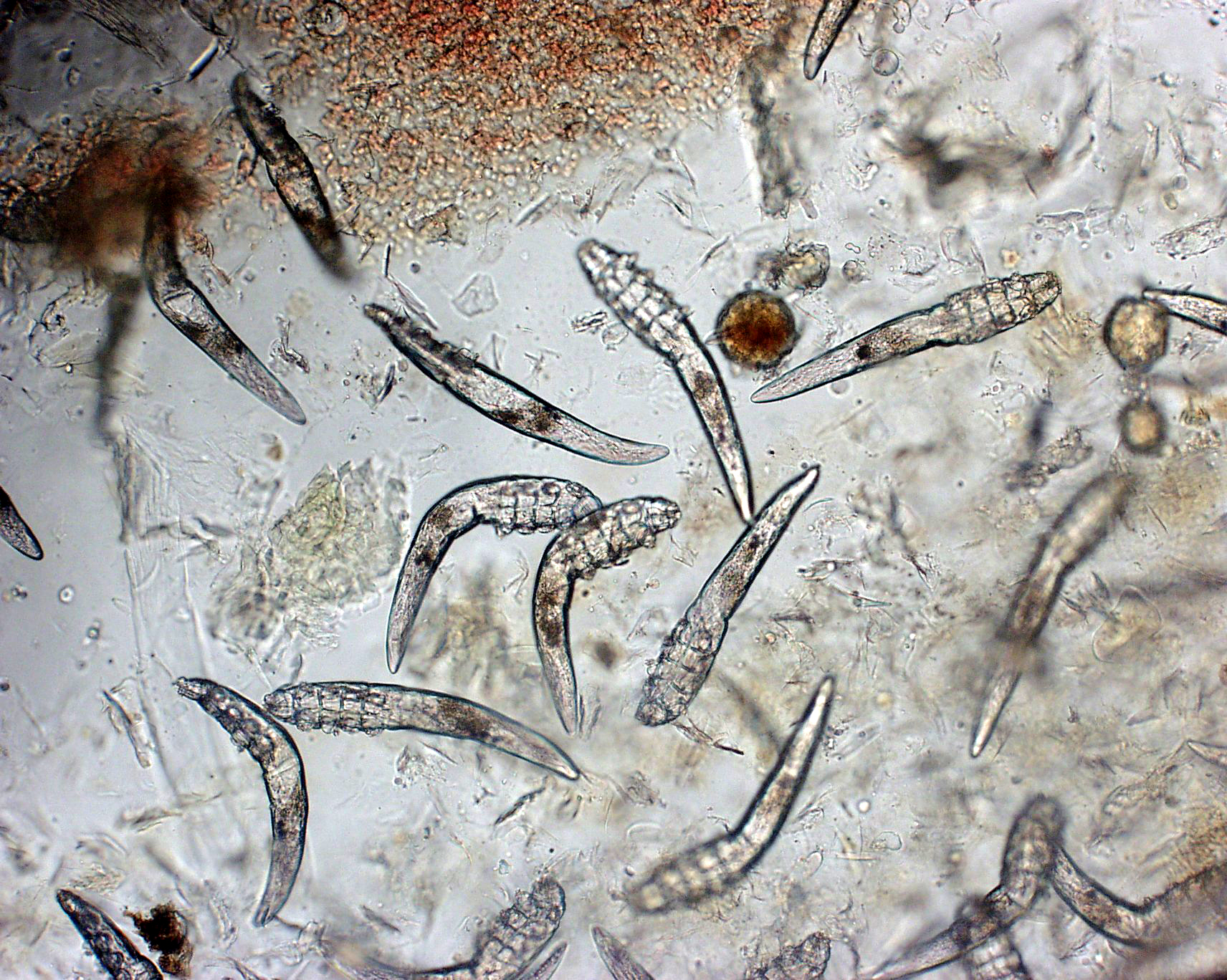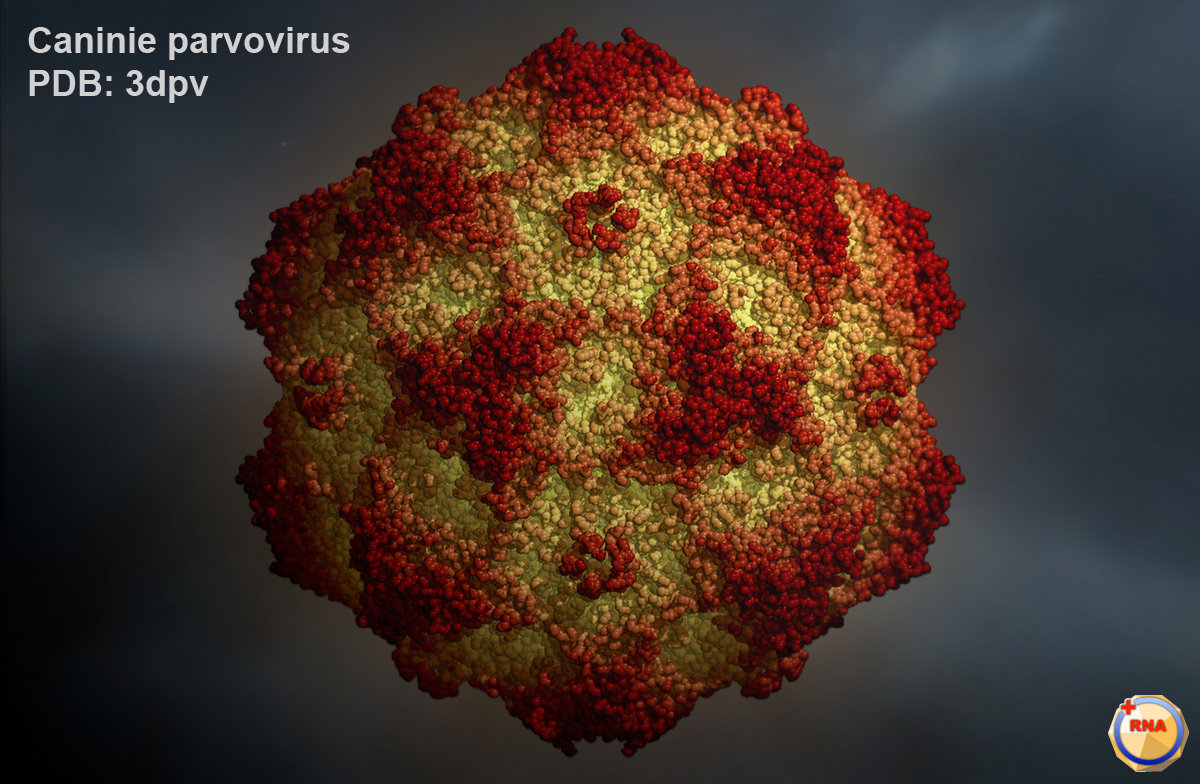COMMON CANINE DISEASES
Just like us Dogs are susceptible to an array of illnesses, the main difference is that dogs rely on us to be able to spot symptoms and subtle changes in their behavior in order for us to help them. A "proactive" approach is the best way to effectively treat any of the diseases below, by performing: Monthly Heartworm Prevention, Regular De-worming and Routine Veterinary Visits; in many occasions, tests performed may yield negative results and days later a dog may start to develop signs of illness, due to the disease incubation periods or larval stage.
Please take your dog for a veterinary check up at least twice a year or immediately if there is a sudden change in behavior.
RABIES

Rabies is a very rare, but potentially fatal, illness that affects the nervous system, generally causing signs associated with changes in behavior. The virus is usually contracted by bite wounds from an infected animal. All mammals including dogs, cats and people may contract the disease. Prevention includes proper vaccinations for all pets and minimizing exposure of domesticated pets to wildlife.
UPPER RESPIRATORY INFECTIONS/KENNEL COUGH

Dogs are susceptible to many different viruses and bacteria that may cause respiratory infections (colds). Symptoms usually include coughing, sneezing, runny eyes or nose, mild fever, lethargy and decreased appetite. Most infections respond to supportive care and antibiotics. Prevention includes proper vaccinations for all pets and minimizing exposure to unknown pets.
HEARTWORM DISEASE

Heartworm disease is a serious and potentially deadly disease in dogs and cats. The condition is transmitted by mosquitoes. The microscopic worm from the mosquito will travel in the bloodstream to the heart and adjacent vessels where it grows into adult worms. Prevention includes periodic testing of pets and medication to prevent heartworm disease. The condition is not transmitted between pets without a mosquito as a host.
INTESTINAL PARASITES

Dogs may show symptoms of intestinal parasites, including weight loss and diarrhea, while other pets may be asymptomatic. Its important to have your dog feces checked for intestinal parasites and treated. Practicing good hygiene, including washing your hands after handling pets or their fecal matter, helps minimize human exposure or risks of cross-contamination between pets.
MANGE

There are two main forms of mange:
-Demodectic Mange: The demodex mite is present in the skin of all dogs, even normal, healthy oneshave small numbers of these mites. The condition only causes a problem when the dog's immune system is supressed and the mites proliferate, causing clinical symptoms. The demodex mite is not contagious to other pets or people.
-Sarcoptic Mange: The sarcoptes mite can invade the skin of healthy dogs or puppies and create a variety of skin problems, the most common being hair loss and severe itching. While they will infect other animals and even humans, they prefer to live their lives on dogs. Prevention includes minimizing exposure to unknown pets.
PARVO VIRUS

Parvo Virus mainly affects dogs. The disease is highly contagious and is spread from dog to dog by direct or indirect contact with their feces. It can be especially severe in puppies that are not protected by maternal antibodies or vaccination. It has two distinct presentations, a cardiac and intestinal form. The common signs of the intestinal form are severe vomiting and dysentery. The cardiac form causes respiratory or cardiovascular failure in young puppies. Treatment often involves veterinary hospitalization. In most cases Vaccines can prevent this infection, but mortality can reach 91% in untreated cases. Canine parvovirus will not infect humans.